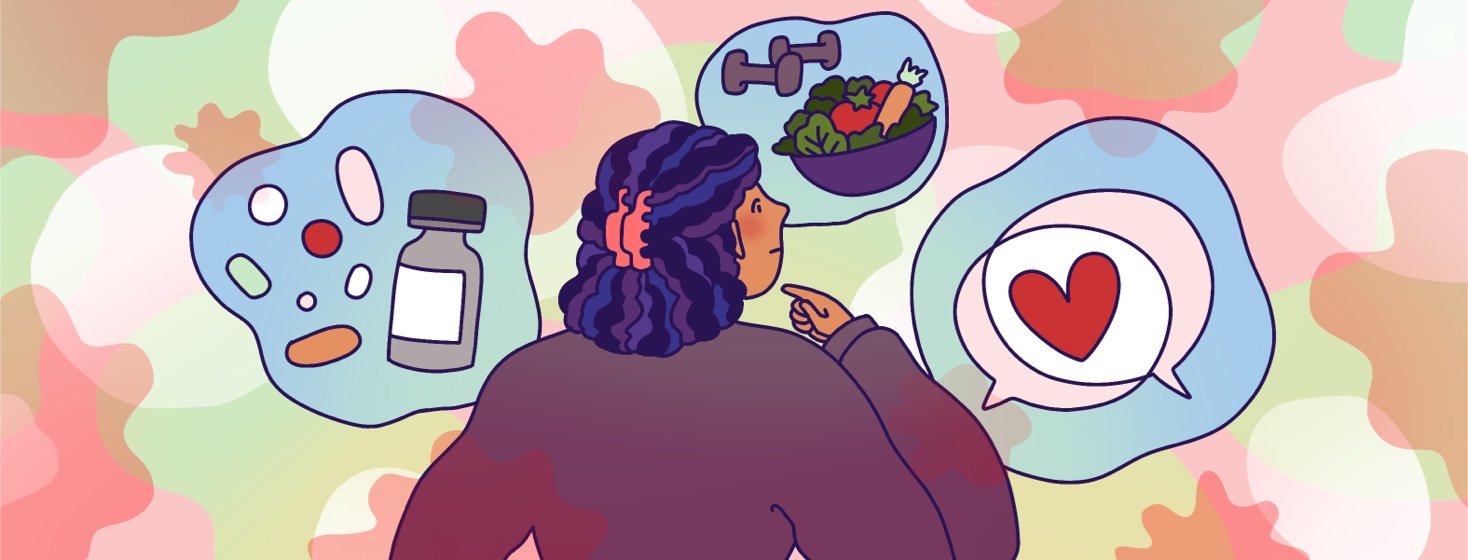Comparing Medications and Natural Treatments for IBS
Ever wondered if there are natural supplements out there that may replace some medications you've been taking? There could be. Talk to a healthcare professional to work out the best treatment approach for you. Here are some supplements that, based on what I have found in my practice, might help.
Are you experiencing acid reflux?
The most commonly taken medicine for reflux and heartburn is proton pump inhibitors (PPIs), like omeprazole. Like most medications, PPIs can have a range of side effects.1
Another over-the-counter (OTC) medicine is made from magnesium alginate, a derivative from algae or seaweed. This can also be effective in reducing reflux symptoms. It forms a foaming gel in the stomach.1
Getting control of GERD
Gastroesophageal reflux disease (GERD) is one of the most common gastrointestinal disorders. About 1 in 5 adults in Western culture live with GERD.2
Treatments for GERD include histamine-2 (H2) blockers. Alternatives to an H2 blocker could be any or all of the following:2
- Deglycyrrhizinated licorice
- Quercetin
- Adding aloe vera, marshmallow root, or l-glutamine to the above
- Peppermint tea for gut spasms
Easing constipation or IBS-C
Laxatives may be necessary from time to time to ease constipation. But make sure the basics are being taken care of, such as:
- A good night's sleep
- Hydration with over 2 liters of water daily
- Stress management
- Movement – the gut needs movement!
A high-fiber diet is key. But if fiber gives you symptoms, that’s a sign to get some support from a health professional. A squatty potty may also help.
If those basics are covered, then a prebiotic fiber may be appropriate. Prebiotics feed your gut bacteria, promoting a healthy and diverse microbiome. Prebiotic fiber examples include psyllium husk and partially hydrolyzed guar gum (PHGG).3
Specific strains of probiotics also can promote motility. They can help regulate bowel movements, which may help with both constipation and diarrhea.3
Easing diarrhea or IBS-D
Taking anti-diarrheal medicines such as Imodium can overcorrect your diarrhea, causing constipation. In addition to the active ingredient, loperamide, Imodium contains a range of other ingredients that may not be good for you.
Natural alternatives for treating diarrhea include:
- Probiotics such as Saccharomyces boulardii
- Minerals such as zinc
- A prebiotic powder such as PHGG
It all depends on why you're having diarrhea, so be sure to speak with a qualified health professional. Prolonged diarrhea can be a clue of something more serious, such as a chronic infection or celiac disease, that needs investigation.
Should everyone with IBS take prebiotics and probiotics?
The best prebiotics and probiotics come from food. However, in cases of IBS, certain strains of bacteria and prebiotics may offer therapeutic benefits. It is best to talk to a nutritionist who can assess your diet, conduct testing, and give advice about which prebiotics and probiotics may be best suited to you.3

Join the conversation